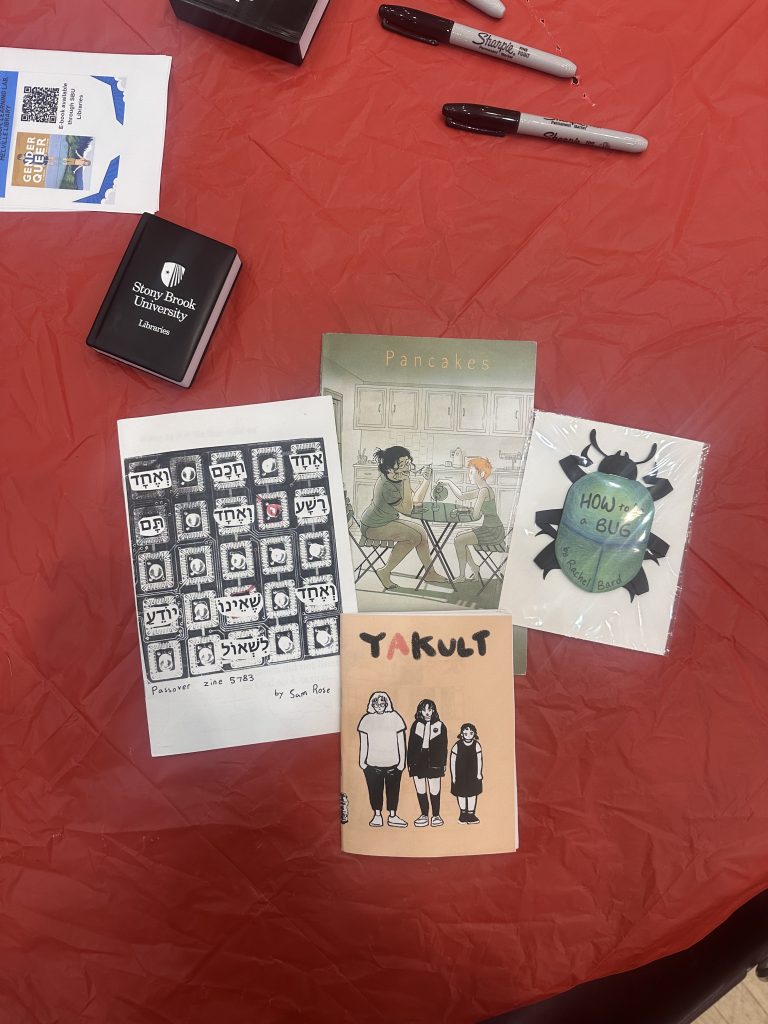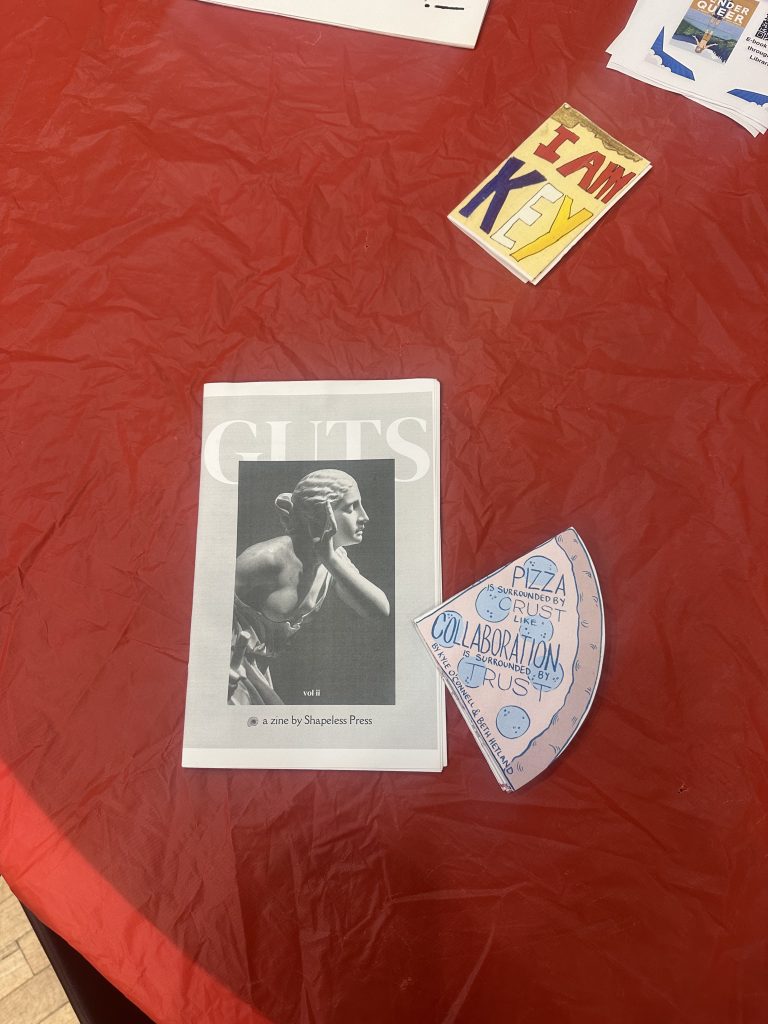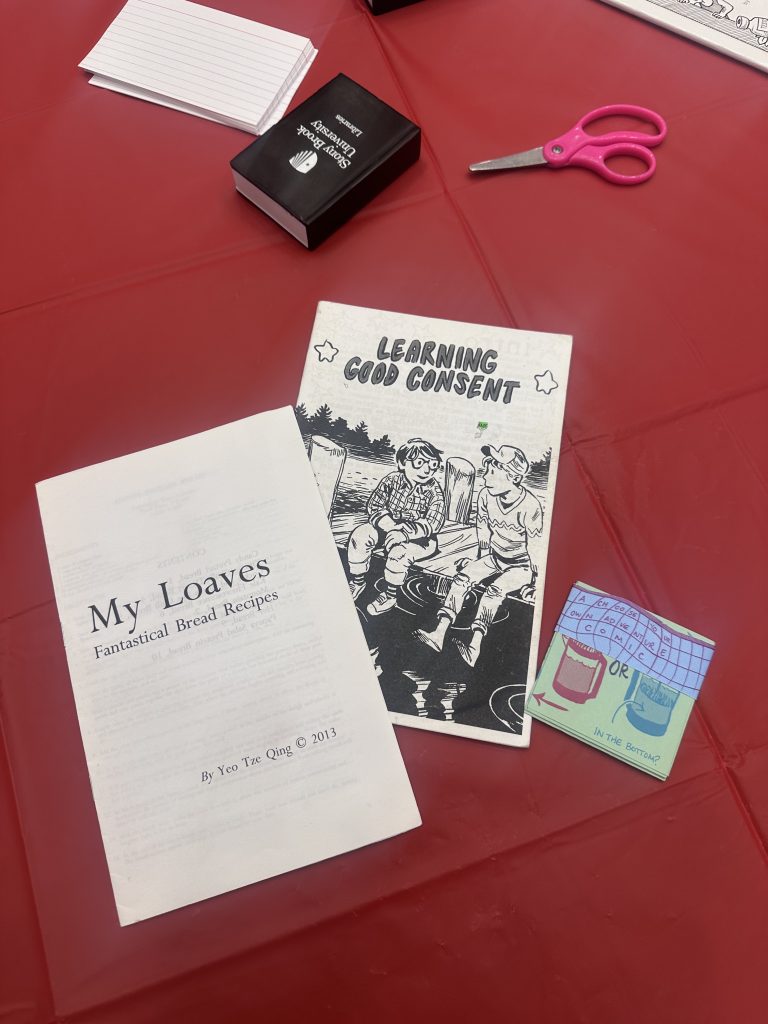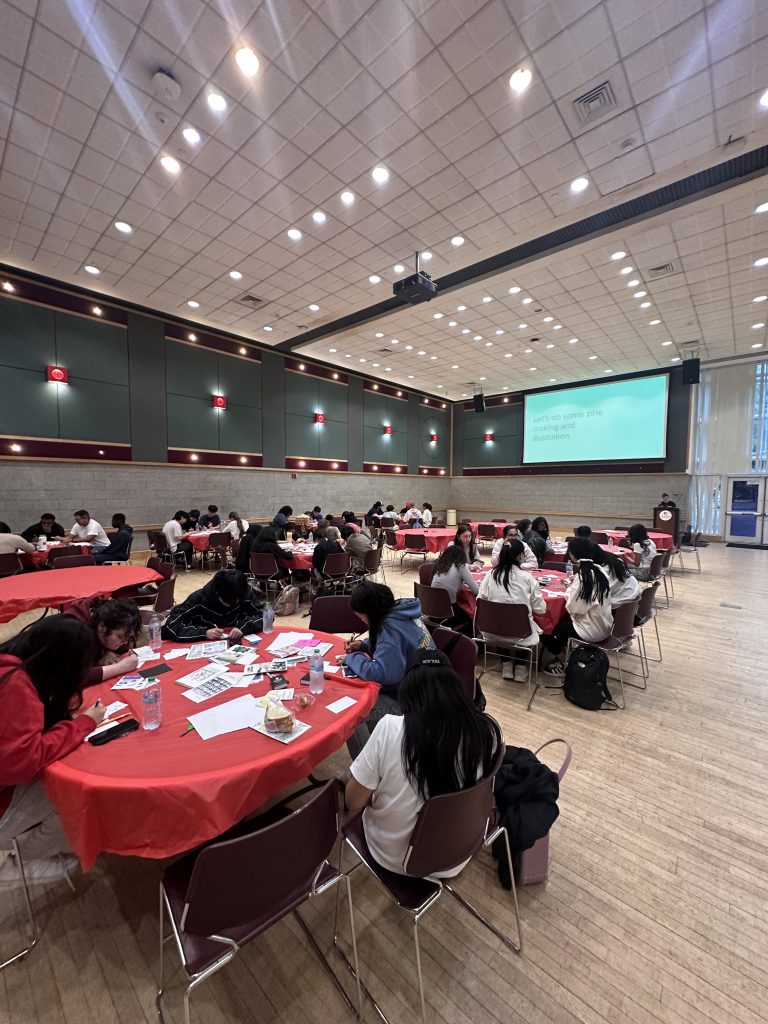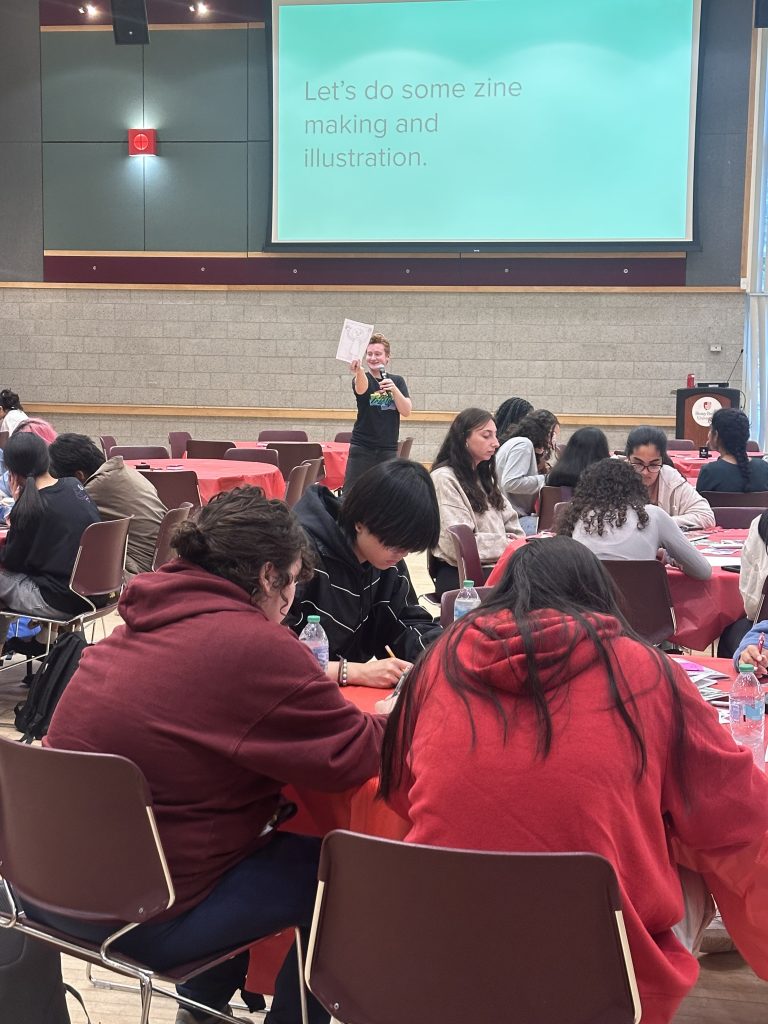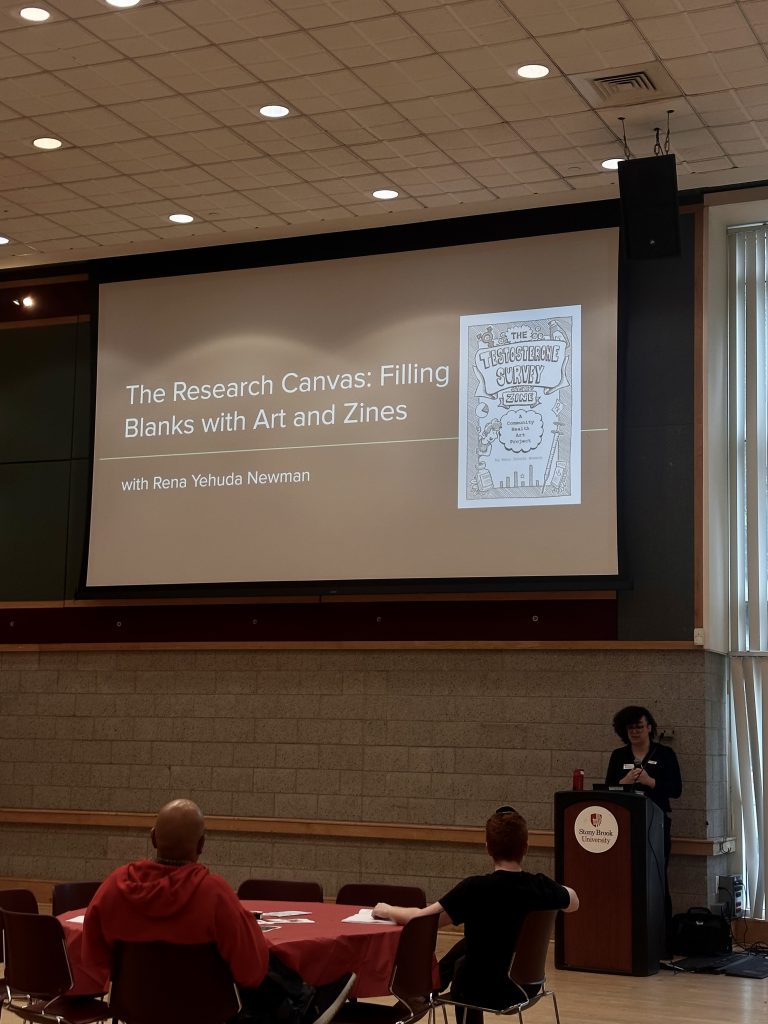On September 26th, Rena Yehuda Newman provided a 90-minute talk entitled: The Research Canvas: Filling in the Blanks with Art, Zines and Queer Techniques. The event was co-hosted by University Libraries and the LGBTQ* Services and Diversity, Intercultural and Community Engagement.
“What is a topic you still don’t know much about?”
Rena Yehuda, is the author, illustrator, and publisher of The Testosterone Survey Zine. Some attendees answered ocean, disease & cure, and dark matte. Rena Yehuda’s passion for zines started in high school when they loved collecting them. That passion led to becoming a creator of zines. They created “The Testosterone Survey Zine”, which is a 60-page book consisting of results from nearly 400 surveys documenting the experience of people medically transitioning on testosterone. This is a public health art project designed to empower people with the knowledge of transitioning on testosterone by answering vital questions about our bodies and needs so we don’t get the sense that we are alone on this journey.
Rena Yehuda conveyed that the origins of this community health project began during a walk with their friend one day and discussing testosterone. As the conversation progressed and numerous questions were raised, Rena Yehuda realized that most of their responses were drawn from their own personal experience. The scarcity of knowledge and information available to individuals undergoing the transition process leads to making stressful medical decisions. Rena Yehuda aimed to take action and provide accessible, data-driven information.
Zines are a type of archival material. They provide a way for people to share their stories and become part of history. In the past, archives were only used by people to keep track of what they do, thus minorities were underrepresented in archival materials.
“Nobody ever feels dumb reading a comic,”
The Testosterone Survey Zine is a collaborative effort between art and data to make it readable for medical practitioners, educators, and the transmasculine. It not only makes it enjoyable to read, but it also helps us think differently with the questions asked.
During the event, students participated in a hands-on activity by choosing a topic that we wanted to learn more about. Using an index card, we wrote down the topics and drew on one of them. Then, we handed the index card off to a person on our side to have them draw how they interpreted the topic. The third index card was used to draw on the one that hasn’t written the topic, and the fourth person had to guess the topic through the drawing.
We created an 8–fold zine with a topic of our choice. First, we chose the title of our zine just like a regular book, then we switched the zines with other attendees several times to create a completed zine. It was interesting to see the different titles that people chose for their zines and how different attendees interpreted their topics through drawing and writing. Illustrations are a powerful tool for transforming information in front of you.
Written by Vicky Huang, Health Sciences Library Student Assistant.
Sunny Chung
Latest posts by Sunny Chung (see all)
- Health Tech Fair 2025 - September 23, 2025
- Health Tech Fair 2025: Save the date! - August 25, 2025
- Michael Huang Receives CALA Outstanding Leadership Award - June 17, 2025

